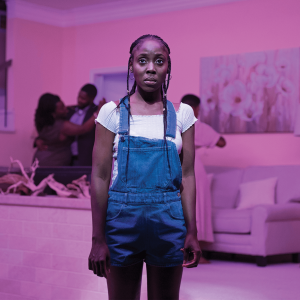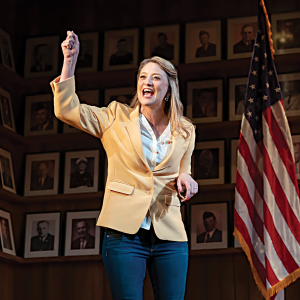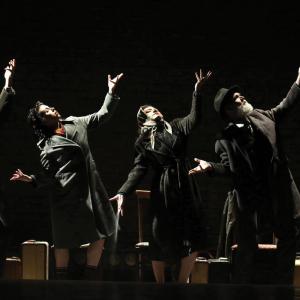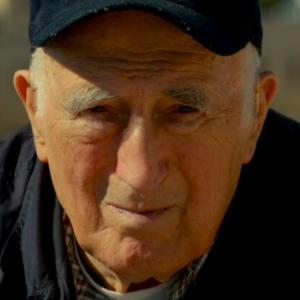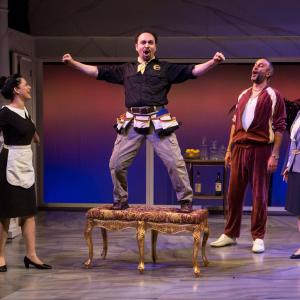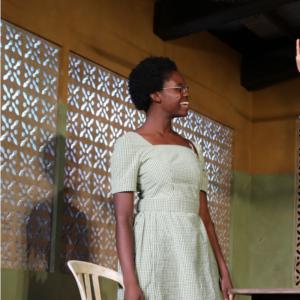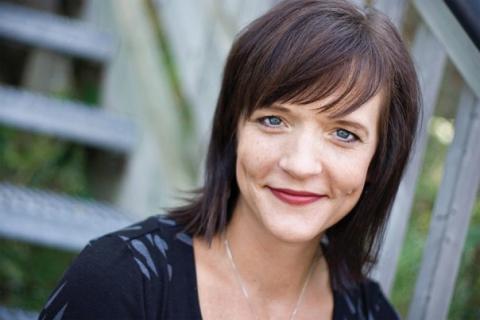
Stephanie Sandberg is an assistant professor of theater and film studies at Washington and Lee University in Lexington, Va. Her most recent work is Stories in Blue: A Pilgrimage to Heal Human Trafficking, which follows the stories of six survivors of sex trafficking.
Posts By This Author
Healing the Healers
Kirsten Kelly and Rev. Tawana Davis help faith leaders address domestic violence.
AS THIS PANDEMIC rages on and people are isolated in their homes with their intimate partners, many are more vulnerable than ever to violence. According to the Centers for Disease Control and Prevention, approximately 1 in 4 women and nearly 1 in 10 men experience sexual violence, physical violence, or stalking by an intimate partner during their lifetime. In addition, an average of 24 people per minute are victims of rape, physical violence, or stalking by an intimate partner in the United States—more than 12 million women and men during a single year.
Odyssey Impact, an interfaith nonprofit that addresses social issues through storytelling and media, hopes to change this with a four-part Healing the Healers video series, directed by Kirsten Kelly, that features interfaith peer-to-peer conversations about domestic violence. It is scheduled for a January 2021 release on healingthehealers.org.
This is the second series under the Healing the Healers name. The first was a five-part video series that grew out of a pastor’s efforts in Newtown, Conn., to deal with the aftereffects of the Sandy Hook school massacre; it includes conversations with clergy, social workers, and first responders who have been on the front lines as different communities have dealt with traumatic events. The second Healing the Healers series on domestic violence likewise addresses a crisis by modeling honest conversation about a difficult topic across faith lines.
American Theater Isn't Dead
How the coronavirus pandemic could bring more democracy to U.S. theater.
WHEN WESTERN THEATER was born in the ancient Theatre of Dionysus some 2,500 years ago, its creators aspired to create a democratic institution, meant to serve the members of every tribe in Greece. The reality fell far short of the aspiration, of course, since women and slaves were excluded from both democracy and the grand stone auditorium. Nevertheless, the theater of Greece was born in a kind of perfect storm, a concurrence of democratic ideology and ideals—especially the belief in free speech for those deemed fit to govern (i.e., free men)—with a golden age of literature. This era brought about some of the most powerful dramatic works known to humanity in the plays of Aeschylus, Sophocles, Euripides, and Aristophanes.
We could be at the brink of another golden age for theater, arising from changes caused by the coronavirus pandemic. How can I say this, when most of those who work in the theater are worried about how theatrical institutions will survive this crisis? Joseph Haj, artistic director of the Guthrie Theater in Minneapolis, notes that theater has endured for centuries “because it is one of society’s proven necessities, not some old-fashioned practice.” It’s a necessity because humans need to gather to hear our stories and find safety in being together—the communal theater experience pushes back at the dangers and sadness that surround us.
And yet the questions abound: Will there be enough funding, public and private, to keep theaters afloat? Will audiences come if they are living in fear? Funding and sufficient audience support were worries before the pandemic hit, even as theatrical writing and technique thrived during the past decade, releasing many new voices onto public stages. The problem is that when a theater ticket often costs upward of $100, few people can afford access to these new voices. Despite the democratic ideals at its roots, U.S. live theater has served a very small, mostly white, upper-middle-class audience. The main exceptions are the rare state and federal grants that provide broader access through educational programs.
There Is No Such Thing as Fairness in the American Theater
A review of “Fairview,” by Jackie Sibblies Drury.
AT THE END of Jackie Sibblies Drury’s landmark drama “Fairview,” the audience faces a deep and enduring question: “Are we able to look through another’s eyes? Or are we merely reflecting on what we’re willing, what we want to see?” To bring us to the point where we’re able to make this query, Drury takes us on a ride through a landscape of African American theatrical tropes, sometimes familiar and sometimes unsettling, so that we are better able to face ourselves, as discomforting as that is.
The beginning seems fairly rote, as a family gets ready for a birthday party in an immaculately white living room. We could be in the home of the Huxtables, chuckling along with the laugh track. Beverly, the perfectionist mother who wishes for everything to be just right for Grandma’s celebration, hovers over all, brushing on the finishing touches.
But, if you look and listen closely, there are cracks that begin to show: the odd wavering of the soundtrack and teenage daughter Keisha turning to address the audience in a moment of Brechtian shock. Then we find that we are not seeing TV-perfect domestic bliss. Keisha comments on the beautiful perfection and longing for her bright future, standing at its threshold, just waiting to seize the day.
Is the Ninth Amendment Enough for Women?
Heidi Schreck debates in 'What the Constitution Means to Me'
WHEN YOU WALK into the theater, you feel you’re at an American Legion community center, with hundreds of framed male portraits lining the walls. It’s a little daunting. And then Heidi Schreck as a young woman arrives to give her speech, “What the Constitution Means to Me.”
She explains that this is how she raised her state college tuition: winning speech and debate competitions about the Constitution, taking on the male power structures that surrounded her. Our 230-year-old Constitution is a wordy and tricky document, to say the least, and Schreck steps up to it with delightful rhetoric, full presence, and comic genius. She shows us why we should be in love with it and why we should uphold it.
But then things shift, and she comes to us, blazer tossed aside, as a now-40-something woman with wisdom and deep questions. The second half of the play takes us on a whirlwind history of the document with all of its problems, especially how this male-conceived, male-written constitution suppressed and continues to suppress women. Sitting quietly at the side, and sometimes explaining the rules of the speech debate competition, is an American Legion representative, played on Broadway by Mike Iveson.
The United Indecency of America
A play gains new significance in a grieving city during troubled times.
PAULA VOGEL WON the 1998 Pulitzer Prize for drama for “How I Learned to Drive” and is a veteran playwright of the American stage. But it wasn’t until 2017 that she finally made her way to Broadway with another of her prize-winning plays: the Tony Award-nominated “Indecent.”
“I wrote it as a love letter to the theater in 2015,” said Vogel, “and I never knew then how the play would resonate as strongly as it does today in these Trumped-up political times.”
“Indecent” tells the story of the theater troupe that performed Sholem Asch’s ill-fated Yiddish play “The God of Vengeance.” Premiering in 1922, “Vengeance” was the first play on Broadway to depict a lesbian love scene, causing a wave of notoriety everywhere it was performed. Asch’s play originated in Poland and tells the story of a Jewish brothel owner’s daughter who falls in love with one of his prostitutes. The father, on discovering his daughter’s forbidden love, throws the Torah down on the stage and banishes his daughter to a life of prostitution.
Asch’s leading actor in Poland warned him not to produce the play, but the play went on a whirlwind tour of success across Europe, finally arriving to New York City’s Greenwich Village in 1922. Despite this, when the show opened on Broadway, it was severely censored. “Why did you agree to those cuts?” the stage manager, Lemml, asks Asch in “Indecent.” “You cut the love between those two girls. There’s only sex left!”
Jean Vanier on Compassionate Communities
The founder of L'Arche says we need forgiveness now more than ever.
ON A BALMY SUMMER afternoon in July, I rang the bell at Jean Vanier’s sky-blue gate in Trosly-Breuil, France. Vanier, the founder of L’Arche, an international federation of communities of people with and without developmental disabilities, is central to a new documentary film, Summer in the Forest. I was there to interview him about the film and as research for a play I’m helping to write for the 50th anniversary of L’Arche Daybreak community, near Toronto.
As the gate opened, Vanier, wearing his signature navy blue jacket, greeted me with the warmest presence I have ever felt, saying, “All the way from Daybreak you have come to visit me!” I replied sheepishly, “Yes, to finally meet the man who changed my life.”
My salutation was not hyperbole—Vanier’s gift, a vision of communities where people live in a spirit of mutual learning, dignity, and care, has touched and changed the lives of thousands of people around the globe. Though I’d come for professional reasons, it also felt like a pilgrimage to seek Vanier’s wisdom in the place where it all began. He ushered me into his small office and living room to chat.
In 1964, while Vanier was living in Trosly-Breuil, he visited a psychiatric hospital near Paris. He saw men there subjected to violence, locked up all day, and feared by the public. He was moved with a compassion that he couldn’t totally understand at the time. But as Vanier told me, “We all have, as human beings, a design that teaches us to reach out to others, and not only to serve ourselves. If we listen to this inner design, this inner voice, it will lead us always to do what is right.” With little training and no formal plan, Vanier bought a dilapidated house and took three of the men out of the institution to live with him in the village.
The first night didn’t go so well, as they could not find how the electricity worked and one of the men became so frightened and violent, smashing windows, that he had to return to the institution the next day. Two of the men, Raphaël Simi and Philippe Seux, lived with Vanier for the rest of their lives. Vanier named their home “L’Arche,” French for “The Ark”—it became the first of what are now more than 150 L’Arche communities in 37 countries.
The Birth of Trump's America?
Sweat, by Lynn Nottage.
LYNN NOTTAGE wrote her sizzling new play Sweat three years ago on a commission from the Oregon Shakespeare Festival. There are moments when artists such as Nottage write at the height of their powers and seem to prophesy about the life of humanity. Certainly Arthur Miller’s Death of a Salesman or Tony Kushner’s Angels in America accomplished such prophetic feats, and it’s not a stretch to say that Nottage’s Sweat could do the same. Set in the Rust Belt of the United States, with the decline of manufacturing jobs reeling out of control, Sweat may be the timeliest play of this New York theater season, opening March 4 on Broadway, at Studio 54.
Nottage got the idea to write the play after hearing that Reading, Pa., is one of the most impoverished towns in the U.S. We witness on stage the birth of Trump’s America, rife with economic hardship in a community that is doing all it can to hang on to its identity, and losing it at every turn.
This pressing drama is set between the years 2000 and 2008, shifting back and forth in time to reveal just how the devastating economic hardships of the 21st century were taking hold. Most of the scenes are set in the town’s local watering hole, where we witness the local culture, friendships breaking down, and a serious hate crime that lands two of the characters in jail. We follow these two directionless young men who are seeking a life that yields more than just another job. We also follow a trio of female friends who have supported one another through it all on the factory floor and in the intimacies of life.
Stages of Dissent
Theater takes on hard questions in a contentious democracy.
JUST AFTER DONALD TRUMP WAS ELECTED, Vice President Mike Pence went to see the hit Broadway musical “Hamilton,” prompting the cast to read a statement from the stage at curtain call stating that they were “alarmed and anxious” that the new administration would not protect the planet or a diverse citizenry.
This set off a Twitter war between Trump and opponents and posed the American theater community as an entity with a strong voice of dissent against Trump’s administration. POTUS-elect tweeted in reply to the cast’s statement that “the theater must always be a safe and special place” and then demanded that the cast apologize.
When Women Write the Script
Women playwrights push back at male domination of theater.
LAST YEAR WILL GO DOWN in history for many reasons. For women, it was the year we came together from all walks of life, said #MeToo—and were finally acknowledged and believed by many. There was and still is hope that this grassroots call for women’s rights and dignity will flow into all areas of life and become more than a symbolic action.
A glimpse of that future is taking form off-Broadway. This season three woman-written and -directed plays, performed by entirely female casts, opened to critical acclaim. It’s an exceedingly rare occurrence, as New York theater has endured a century of male dominance in all the related professions except costume design and stage management. In 2015, the League of Professional Theatre Women, as part of a project called Women Count, tracked the number of women working in all aspects of theater in 22 off-Broadway theaters from 2010 to 2015. Only 30 percent of plays premiering in these venues were written by women, with 33 percent being directed by women. So these multiple women-driven plays offer hope for gender equity in the theater world.
Redefining beauty
School Girls; Or, The African Mean Girls Play , by Jocelyn Bioh, is a dizzying romp through nasty coming-of-age teen dramedy that pays homage to Tina Fey’s classic Mean Girls. Taking place in a Ghanaian girl’s boarding school during the 1980s, Bioh’s first full-length play addresses cruel, clique-ish competition among adolescents using the template of the American genre, yet something fresh emerges. The story follows the queen of the school, Paulina (MaameYaa Boafo), as she vies to be named Miss Ghana and participate in the Miss Universe pageant.
While the comedic ending is not significantly surprising, there is a poignant and timely theme that emerges through the exploration of African beauty.
Hell and the Modern Pastor
An off-Broadway play- a "kind of sermon"- portrays a crisis of faith.
“Make us one,
Make us one body,
Because when we are one body,
We see something we cannot see
By ourselves ...
In the name and in the blood of Jesus,
Amen”
SO OPENS LUCAS HNATH’S PLAY The Christians, which premiered at the Humana Festival of New American Plays in 2014 and at Playwrights Horizons Off-Broadway in 2015. The play is described as a “kind of sermon,” sometimes literal, sometimes figurative. The Christians marks a distinct turning point in the history of American theater, in that its evangelical main character’s struggle with ideas is treated as a serious subject that reflects on a nation’s moral dilemma.
Religious themes are hardly a new topic for U.S. theater, but most often they’ve been treated negatively. Arthur Miller’s plays, such as The Crucible and After the Fall, treat religion as an institution of animosity, even a kind of antagonist. Tennessee Williams uses religion as a quaint and antiquated emblem of Southern culture—such as in The Glass Menagerie, where the character Amanda says, with exaggerated sympathy, “You’re a Christian martyr.” Then there’s Inherit the Wind, by Jerome Lawrence and Robert E. Lee, a dramatic treatment of the Scopes Monkey Trial that depicts Christians as hostile and uneducated. If the American theater were an accurate mimesis of American truth, Christians would be lying, narcissistic, two-faced, McCarthyist bigots.
The Christians is a completely different story, in which the dramatic action depicts a loving, thoughtful pastor as the protagonist up against the institution of the church. Each character is treated with due reverence and given a fair argument, so that there are no easy answers, and the audience is left grappling with the central struggle. The play is reminiscent of Norwegian playwright Henrik Ibsen’s An Enemy of the People (a quote from this play is The Christians epigraph), where a citizen who tells the truth faces the wrath of a village that turns on him. Both plays explore deep ethical issues as the central characters risk their reputations and their livelihoods through standing by their principles.
The first scene of Hnath’s powerful drama is a contemporary church service, highlighted by PowerPoint slides, with a sermon based on Isaiah 30:12-13: “Because you have rejected this word and relied on oppression and depended on deceit, this sin will become for you like a high wall, cracked and bulging, whose collapse comes suddenly in an instant.”
The sermon is delivered by the energetic and youthful Pastor Paul at an evangelical megachurch that could be anywhere in the United States. He goes on to describe what he views as the crack in his church’s foundation, delivered with the smooth tones of a master orator who has always won the favor of the congregation. He tells a story he heard at a pastor’s conference about a boy, in a country ravaged by violence, who rushes into a burning building to save a little girl and dies from his burns. Pastor Paul is tortured by this story, told to him by a missionary who mourns for the boy saying, “What a shame, I didn’t save this boy for Christ ... what a shame I didn’t save this boy from hell.”
Devils We Know
In Broadway's "Hand to God," a sock puppet unleashes church-basement demons.
THE DEVIL HAS long been wildly popular on stage, dating back to the Middle Ages when church authorities routinely cancelled performances because they worried that representations of the devil were so deliciously tempting that weak believers might falter. The dualistic image of a good, sweet angel on one shoulder and dirty demon on the other has infiltrated popular culture from children’s cartoons to adult sitcoms, signifying the struggle of our tempted conscience. And the devil always has the better jokes. In literary works, such as Paradise Lost and Doctor Faustus, the devil’s presence has driven plots forward through acts of temptation, leading the protagonist into some lusty or murderous act. The cliché is brought to life: “The devil made me do it.”
In 2015, the devil makes a serious comeback on Broadway in a successful run of Robert Askins’ new play, Hand to God, nominated for five Tony Awards, including best play and best direction. Askins takes his audience on a different kind of devilish journey.


